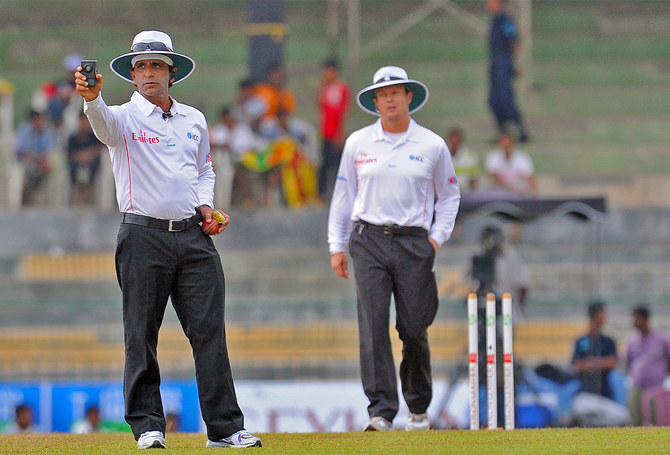ISLAMABAD: Former Pakistani umpire Asad Rauf, who was part of the International Cricket Council’s (ICC) elite panel, passed away in Lahore on Thursday.
Rauf, 66, died from a cardiac arrest, according to multiple media reports. He officiated in 64 Tests (49 as on-field umpire and 15 as TV umpire), 139 ODIs and 28 T20Is before his career ended abruptly following a damning Indian Premier League (IPL) scandal in 2013.
Rauf, alongside fellow Pakistani umpire Aleem Dar, was one of the most prominent Pakistani umpires in the mid-2000s. He was elevated to the ICC’s elite panel list in 2006, a year after he officiated his first Test match.
After standing in his first ODI in 2000, Rauf was elevated to the ODI panel in 2004. However, his career suffered a downward spiral in 2013 when he was named a “wanted accused” by Mumbai Police in a spot-fixing investigation.
The Pakistani umpire left India before the IPL final on May 26 that year. It is believed police were investigating alleged gifts he received.
News of his demise, however, drew condolences from various quarters. Pakistan Cricket Board (PCB) Chairman Ramiz Raja said Rauf’s death had saddened him. ‘Not only was he a good umpire but also had a wicked sense of humour,” Raja wrote on Twitter.
Pakistani cricketer Kamran Akmal prayed for Rauf’s forgiveness and wished his family would have the patience to bear his demise.
Indian sports journalist Sanjay Kishore expressed his condolences as well, referring to Rauf as “one of the finest umpires of his time.”
Pakistani sports broadcast anchor Dr. Nauman Niaz said Rauf “saw the lows but sustained all pressures.”
Pakistani batter Faisal Iqbal said Rauf was “a dear friend who I have some cherished memories on the field in domestic and International cricket.”
Before he began his career as an umpire, Rauf played 71 matches as a first-class cricketer in Pakistan’s domestic cricket circuit. He represented the National Bank and Railways teams, averaging 28.76.
















